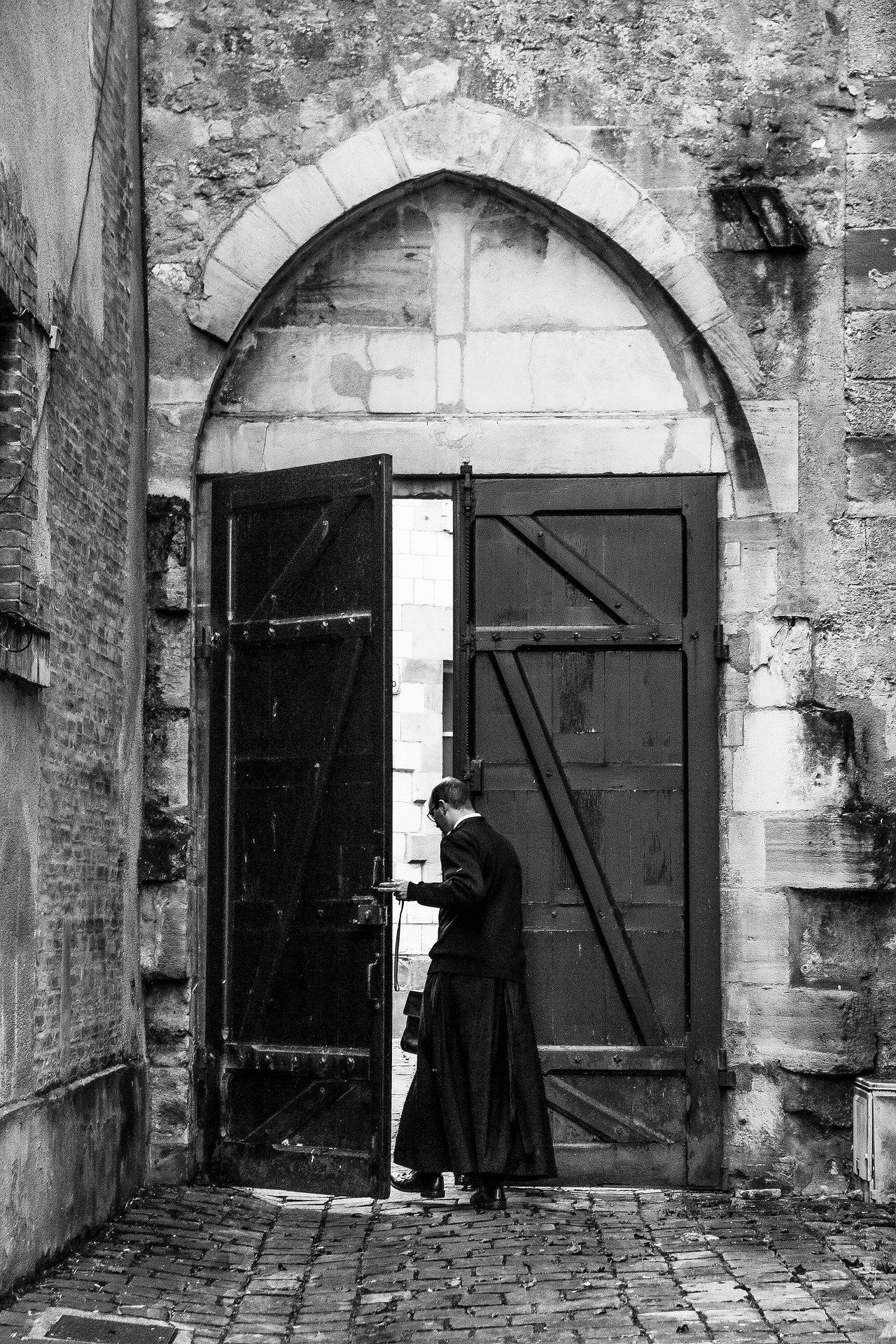As a young boy growing up in the Roman Catholic Church, I will always remember the clear and emphatic claim of my teachers and contemporaries that ‘salvation is only through the Catholic Church’. Again, ‘there is only one true Catholic and Apostolic Church, and anyone who leaves the Church will be lost forever’.
These are familiar words to virtually every Roman Catholic; at least it was so in my day in Southern Ireland. But has the Roman Catholic Church changed? She claims to be semper eadam, always the same. Many prominent Evangelicals, however, seem to believe that she has changed, and that, therefore, unity can be pursued. I beg to differ.
Stunned
On 4 September 2000, the London Times carried a front-page headline which read, ‘Churches stunned by Pope’s attack on “defects”’. Their Religious Affairs Correspondent wrote: ‘The Church of England and other Protestant churches are not “proper” churches because they suffer from “defects”, according to the Roman Catholic Church’.
The statements in question are contained in Declaration Dominus Iesus, written by Joseph Ratzinger, Prefect of the Congregation for the Doctrine of Faith (the Vatican organisation previously known as the Inquisition). The document was approved by the pope, and therefore claims ‘apostolic authority’. It may be found on the Internet.
Again, The Times writes, ‘The declaration, which has been received with “stunned horror” by bishops and Roman Catholic theologians throughout the world, threatens to undo decades of inter-faith bridge-building’.
Personally, I rejoiced that the Roman Catholic Church issued this statement, since it shows her true colours and warns Evangelicals of her real position. Some Evangelicals will learn but, unfortunately, others will not and will work even harder for reconciliation with Rome.

Cat and mouse
Rome’s declaration on the validity of other churches demonstrates that she is playing ‘cat and mouse’ with the Protestant churches while, behind closed doors, she is developing strategies to undermine them.
Unfortunately, there are indeed ‘defects’ in many churches today, particularly the progressive deterioration in doctrinal preaching and teaching. Apostasy among Protestant theologians and liberal churches deserve valid criticism.
However, I do not concede for one moment that all Evangelical churches have ‘defects’ or are not ‘proper’ churches. Moreover, it is not difficult for believers who read their Bible regularly to identify and recognise Rome’s own cardinal errors. We will deal with two key aspects, which are fundamental to a ‘standing or falling church’.
The Bible
Firstly, Rome’s view of the Bible is ‘defective’. She holds the Bible and the tradition of the church in equal regard. Rome suffers from ‘the addition of tradition’. Although in recent decades the Roman Catholic Church has allowed people to read the Bible, yet her trainee priests, particularly in Ireland, will study 75% philosophy and 25% theology.
In his devotions, a Catholic priest will use other means more than the Bible. Many Catholic homes have Bibles, but they are seldom read. The Roman Catholic Church is selective in her worship, carefully using the Bible to uphold her doctrines.
They hold that ordinary people cannot understand the Bible, and need the church to interpret it for them. This denies the validity of private judgement and encourages priestcraft.

If the Church of Rome were a true church, it would subject its teaching to the test of Scripture, but it dare not do so. The Holy Scriptures are the sole and sufficient source of revelation from God for our salvation. ‘Scripture alone’ (sola Scriptura) was the clarion cry of the Reformers, and it must still be ours today.
Christ’s methodology
Of course, as Protestants, we value our creeds, confessions of faith and catechisms, because they are based on the Bible. But the Bible itself must be the final court of appeal in faith and practice. We believe in the perspicuity (clarity) of Scripture, so that the ordinary person may understand it by the help of the Holy Spirit.
However, ‘the natural man does not receive the things of the Spirit of God’ (1 Corinthians 2:14). A person must be born again to truly understand the Word of God (John 3:3,5,7). Faith comes by heeding the Word of God (Romans 10:17).
The Church of Rome would do well to follow our Lord’s own methodology. On the road to Emmaus Christ ‘opened’ the Scriptures to show himself to his disciples (Luke 24). He has been doing the same ever since for two thousand years through the faithful ministry of the Word and the Holy Spirit’s work.
If Rome were a ‘proper’ church, she would follow Christ’s example, and open the Scriptures to her people. True apostolic authority involves subjection to the authority of the New Testament revelation, not the progressive speculations of popes and councils.

The gospel
A second area where the Church of Rome is ‘defective’ is in its understanding and teaching of the gospel of God. The very heart of the gospel is justification by faith in Christ and his substitutionary work on the cross. Paul writes of the gospel: ‘For therein is the righteousness of God revealed from faith to faith: as it is written, “The just shall live by faith”’(Romans 1:17).
The word ‘therein’ is crucial. Paul is saying that in the gospel the righteousness of God is both revealed and made accessible to faith. He concludes that ‘being justified by faith we have peace with God’ (Romans 5:1). The New Testament teaches that justification is by grace alone, by faith alone, through Christ alone.
This, however, is the stumbling block to Roman Catholic theology, which insists that the church and its priesthood are necessary to mediate salvation to sinners.
Is faith sufficient?
Much effort and discussion has taken place in recent times to remove the theological barriers erected by the Reformers against the Church of Rome’s theology. Words have been crafted and redefined to overcome the differences. But remember; Rome hates the word ‘alone’.

This little word makes all the difference, for it deals a fatal blow to human pride and salvation by works. The Roman Catholic Church teaches ‘justification by faith’. But, according to Roman dogma, faith is not sufficient. Protestants have a ‘defect’ in this regard, they claim. Rome’s position is that you have to be ‘just’, before God can ‘justify’ you.
According to Rome, baptism infuses righteousness into a person, even an infant, and makes them holy. However, when that person commits sins this initial merit is removed. If a person commits mortal sin, righteousness is diminished.
This triggers the unscriptural sacrament of ‘penance’. This involves contrition and confession of sins before a priest, who will then grant ‘absolution’ to restore the lost righteousness. One minute you have righteousness and the next minute it is gone.
This conjuring trick robs the gospel of its power, for the New Testament teaches that the believer’s righteousness consists of a once-for-all imputation of the righteousness of Christ. This righteousness is unmerited (being bestowed by the free grace of God) and is acquired by faith (which is itself the gift of God; Ephesians 2:8).
Unscriptural dogmas
Living as a Roman Catholic means that you never really know when you are in a state of ‘venial sin’ or ‘mortal sin’. This creates depression and doubt concerning one’s eternal salvation, because salvation is thought to depend on being ‘just’ in one’s efforts to please God.
Scripture, on the other hand, states that God justifies the ‘ungodly’ (Romans 4:5). Rome will not accept this teaching, and has re-affirmed this time and time again since the Council of Trent. This Council (1545-1563) was Rome’s response to the Reformation, and the Second Vatican Council upheld its doctrines.

Furthermore, Rome adds the Mass (the eucharistic mystery of transubstantiation) to the gospel, which strikes at the centrality of the work of Christ on Calvary. Rome encourages devotion to Mary under the titles of ‘Benefactress’ and ‘Mediatrix’, and the current pope has done more to foster devotion to Mary than any other.
Rome believes in unscriptural dogmas such as the infallibility of the pope and the ‘Immaculate Conception’ of the Virgin Mary and her ‘Bodily Assumption’ into heaven.
Rome has created purgatory because she does not understand that Christ purged our sins in his own body on the tree.
In short, the Roman Church has created a system of religion that is contrary to Scripture and must, therefore, be rejected by all Bible-believing Christians. Rome’s gospel is a counterfeit gospel, lying under the anathema of the Holy Spirit (Galatians 1:6-9).
No Unity
The Roman Catholic Church and true Evangelicals cannot, therefore, be reconciled. Rome’s works-based religion strikes at the heart of the true gospel, and is therefore ‘defective’ in doctrine and practice. The Church of Rome cannot be a true expression of the church of Christ on earth.
Finally, remember that dialogue with Rome will only result in increasing darkness within Protestantism. There will be a false ‘super-church’ in the last days, and Rome is certainly heading up a worldwide ecumenical movement. Eventually other world-religions will be involved, despite what Rome may be saying publicly at present.
Rome is not moving towards Protestants, but they are drifting, slowly but surely, into her way of thinking. Now is the time to sound a warning and proclaim with unrelenting clarity the gospel of salvation through grace alone, by faith alone, through Christ alone






